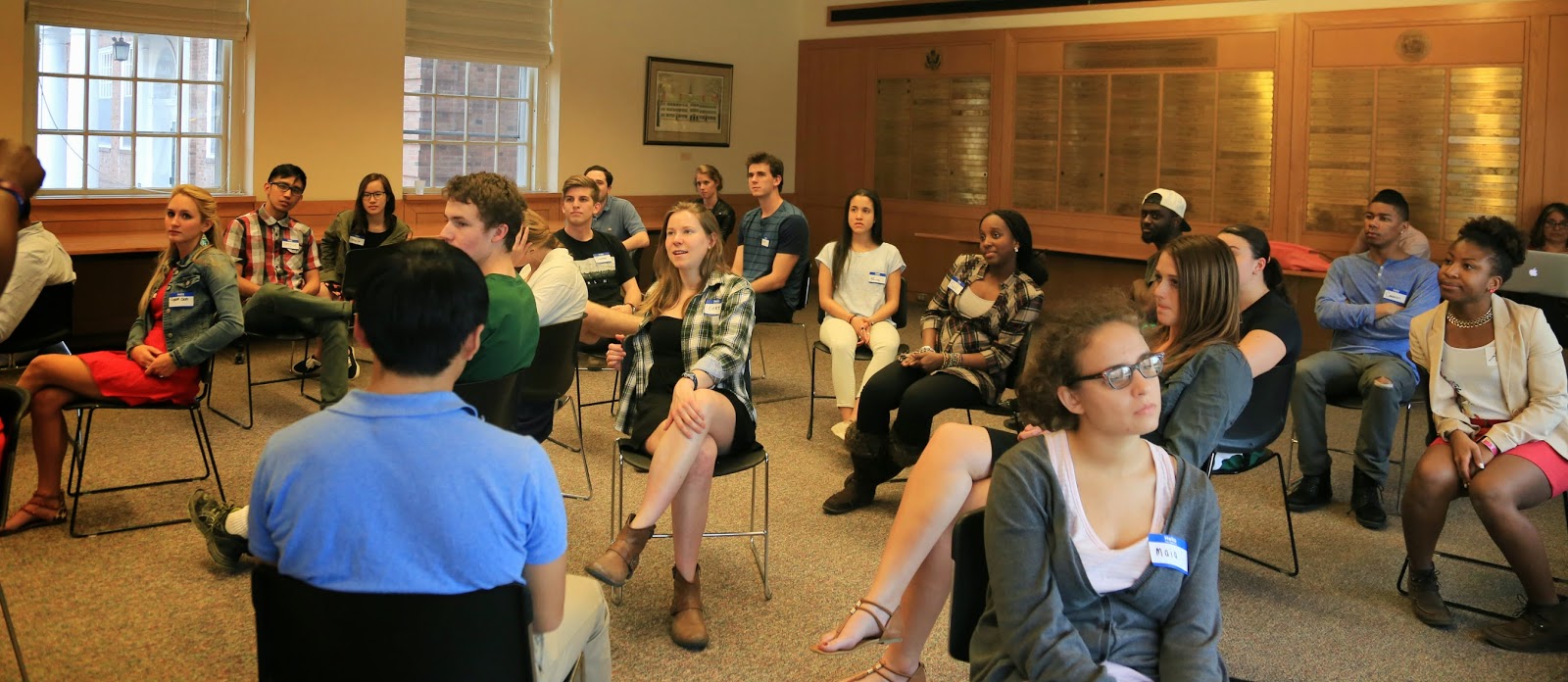Menu
- Public Policy
- Leadership
- Funding
- News & Events
- About the Center
Back to Top Nav
Back to Top Nav
Back to Top Nav
Back to Top Nav
This ongoing series explores sessions of the Rockefeller Global Leadership Program (RGLP) through participant narratives. RGLP engages Dartmouth students who have demonstrated leadership skills and would like to extend these skills on a globally conscious level. In this program, students focus on and further develop international leadership competencies, which have become increasingly crucial in corporate, public and non-profit sectors today.
This week RGLP participants had the pleasure of participating in a session with Dr. Dottie Morris, Chief Officer of Diversity and Multiculturalism and Title IX Coordinator at Keene State College. Much of our session centered on the concept of identity—how we as individuals come to understand identity, what elements of our lives and experiences have influenced its development, and if identity is even a constant in a world of fluctuating circumstances.
 |
| RGLP Participants explore identity and perspective through scattered seating directions. Photo by May Nguyen '18. |
When we entered the Class of 1930 room to begin our session, we found an assortment of chairs scattered about the room without clear organization. Some faced the windows, some faced the whiteboard, and others were at random angles. After we all chose where to sit down, Dottie began leading us through a discussion about what our choices and behaviors in this new "chair" environment represented, an allegory to our life experiences. We talked about the role of agency and the role of choice, or lack thereof, in individuals’ realities, about the necessity of questioning one’s environment and the circumstances you are presented with, and the role that respect, curiosity, and an underlying desire for conformity play in that very questioning.
We then moved to small one-on-one talks about our personal perceptions on identity. We found that identity was rooted in families for some people, in personal pursuits for some participants, and in movement from place to place for others. Shifting back to a group discussion, many of us asserted that transitioning to and living in the Dartmouth environment had a salient effect on our identities. We discussed the concept of "losing oneself" in this context and tried to distill what such a phrase actually meant. Is losing yourself inherently a negative thing, rooted in a loss or sacrifice of identity? Or is it that the clean slate and multitude of opportunities at Dartmouth offer a potential for personal re-invention, with such an evolution of identity in fact being a positive development?
Ultimately, the core tenets of Dottie’s message during our session were simple. "Conformity without analysis stifles innovation" and "It is better to co-create than to integrate." The first of these seems self-explanatory but extremely accurate in my opinion. The second, however, requires slightly more clarification. What is the difference between co-creation and integration? Our group, together with Dottie’s guidance, found the delineation to be a stark one. Integration involves a combination of two aspects into one compromised whole, where inevitably one is subsumed by the other. Co-creation maintains the integrity of two separate entities by having them work in tandem to create something new entirely, the whole becoming greater than the sum of its parts.
-Written by Aylin Woodward '15, Spring 2015 RGLP Participant